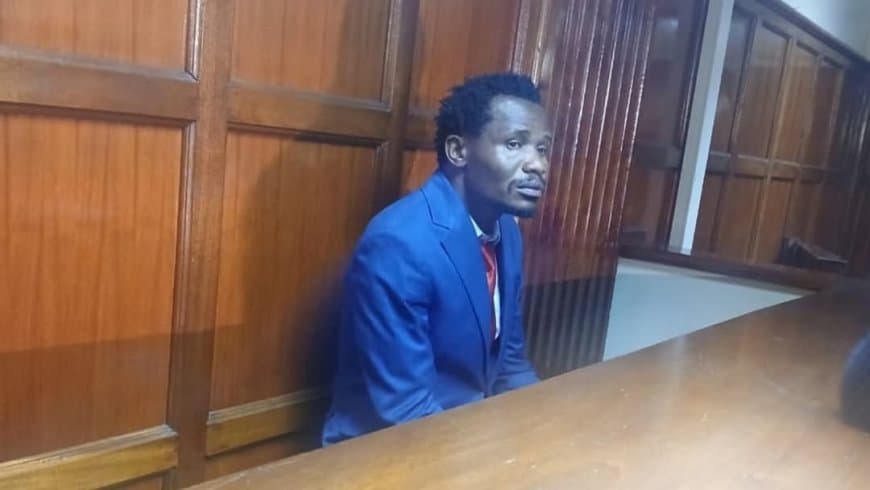We're loading the full news article for you. This includes the article content, images, author information, and related articles.
Mumias East MP Peter Salasya's social media posts have landed him in court, with a potential three-year jail term or a KSh 1 million fine if convicted of hate speech, highlighting Kenya's strict stance against ethnic incitement.

Mumias East Member of Parliament Peter Salasya is facing a possible court trial and a significant jail term over alleged hate speech remarks made on his X (formerly Twitter) account. The case has been referred to the National Cohesion and Integration Commission (NCIC) for review and recommendations, a move that could determine the lawmaker's immediate political future.
Senior Resident Magistrate Paul Mutai, presiding over the case in Nairobi, cautioned on Wednesday, October 8, 2025, that Salasya risks a full trial if substantial progress is not achieved in the matter. The referral to the NCIC followed a request from the Office of the Director of Public Prosecutions (ODPP), which sought the Commission's assessment before further legal action.
Salasya was initially charged on Monday, May 19, 2025, with hate speech, accused of publishing inflammatory remarks on his X account on Friday, May 10, 2025. These remarks allegedly targeted members of specific ethnic communities, following an altercation at Nyayo Stadium during a World Cup qualifier between Kenya and Gabon. The MP, known for his outspoken nature, has denied the charges, with his defence team arguing that his comments were taken out of context.
The issue of hate speech, particularly on social media, remains a significant concern in Kenya's political landscape. Over half of hate speech cases pending in Kenyan courts in 2022 were perpetrated on social media platforms. The National Cohesion and Integration Act of 2008 was enacted following the 2007-2008 post-election violence to address and reduce inter-ethnic conflicts and discrimination.
Under the National Cohesion and Integration Act, hate speech is a criminal offense. Section 13 of the Act defines hate speech as the use of threatening, abusive, or insulting words or behaviour, or the display of any written material, intended or likely to stir up ethnic hatred. Ethnic hatred is further defined as hatred against a group of persons based on colour, race, nationality (including citizenship), or ethnic or national origins.
The NCIC's mandate, established under this Act, is to promote national unity, good relations, and peaceful coexistence among Kenya's diverse ethnic, racial, and religious groups. The Commission's role in such cases is advisory, providing recommendations to the ODPP rather than making judicial determinations of guilt or innocence.
State Prosecutor Virginia Kariuki from the ODPP emphasized the necessity of the NCIC's input in determining whether Salasya's remarks meet the legal threshold for hate speech. Magistrate Mutai, however, questioned why the NCIC had not been engaged earlier in the process, before the MP was formally charged. He urged the prosecution to exhaust all preliminary procedures before bringing such cases to court.
If convicted and sentenced to six months or more in prison, Salasya could automatically lose his parliamentary seat, triggering a by-election in Mumias East. This development could significantly influence public debate and policy execution, particularly concerning freedom of expression versus the need for national cohesion. Proposed amendments to the National Cohesion and Integration (Amendment) Bill, 2022, seek even tougher penalties, including a possible ten-year jail term or a KSh 10 million fine for publishing hate speech, and a five-year disqualification from holding public office.
The specific content of Salasya's controversial social media posts, while alleged to be ethnically inflammatory, has not been fully disclosed in court. The timing of the NCIC's involvement, after charges were already filed, has also raised questions from the judiciary regarding procedural thoroughness.
The NCIC is currently tasked with reviewing the case and providing its recommendations. Salasya was also ordered to appear before the NCIC for questioning on Wednesday, October 8, 2025. The case will be mentioned again on Monday, November 11, 2025, to receive a status report on the NCIC's findings. Should no progress be made by then, the case will proceed to a full trial.
All eyes will be on the NCIC's recommendations and the court's decision on November 11, 2025. The outcome will not only determine the fate of MP Salasya but also set a precedent for how Kenya enforces its hate speech laws in the digital age, balancing freedom of expression with the critical need to safeguard national cohesion.
Keep the conversation in one place—threads here stay linked to the story and in the forums.
Sign in to start a discussion
Start a conversation about this story and keep it linked here.
Other hot threads
E-sports and Gaming Community in Kenya
Active 9 months ago
The Role of Technology in Modern Agriculture (AgriTech)
Active 9 months ago
Popular Recreational Activities Across Counties
Active 9 months ago
Investing in Youth Sports Development Programs
Active 9 months ago
Key figures and persons of interest featured in this article